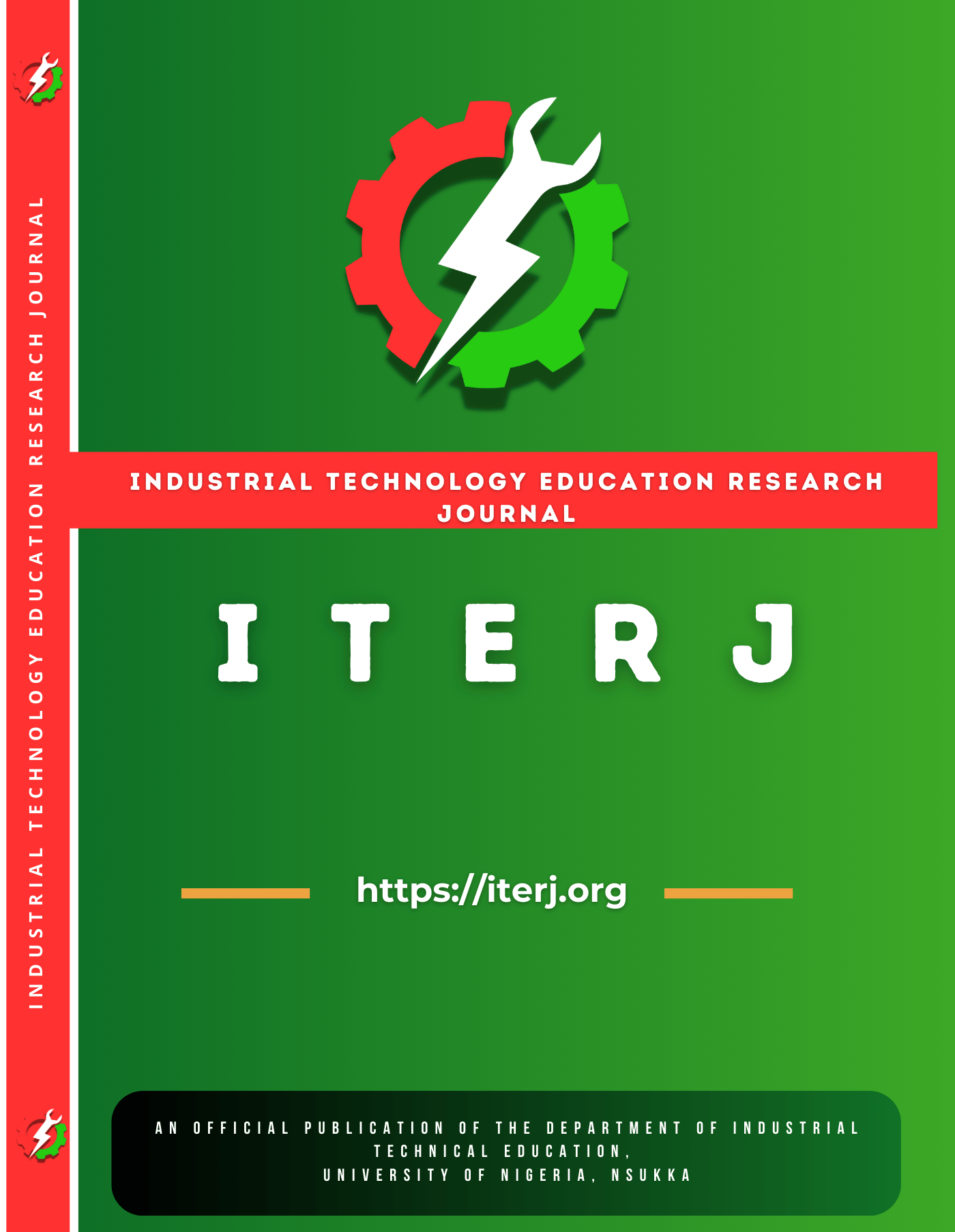Exploring the Relationship Between Job Status, Years of Experience, and Job Performance Among Metalwork Technology Education Lecturers in Colleges of Education (Technical) in North Central Nigeria
Keywords:
College of Education, Job Performance, Job status, Lecturers, Metalwork Technology Education, Years of experienceAbstract
This study explored the relationship between job status, years of experience, and job performance among Metalwork Technology Education (MTE) lecturers in Colleges of Education (Technical) in North Central Nigeria. Utilizing a correlational survey design, data were collected through a structured questionnaire administered to MTE lecturers across 15 institutions in the region. The study aimed to determine whether years of experience and job status significantly relate to job performance among these lecturers. Descriptive and inferential statistical methods were employed to analyze the data. The findings revealed that years of experience (YOE) negatively correlates with job status and positively correlates with job performance, indicating that years of experience play a crucial role in job performance (r = 0.225, p< 0.05), thus more experience is associated with better job performance; while negatively correlating with job status (r = -0.214, p< 0.05), indicating that workers with more experience tend to be among the lower cadre. Hierarchical multiple regression analysis also confirmed the correlations, and buttress the importance of years of experience in job performance of MTE lecturers (R2 = 0.051, β = 0.224, p = 0.024). These results suggest that since some lecturers are teaching while others conduct practical, the job status of a lecturer may have a more direct impact on their effectiveness and productivity than the length of time they have spent in the profession. Suggestions were made for educational policymakers and administrators to consider these dynamics in their efforts to improve the quality of technical education in the region.








